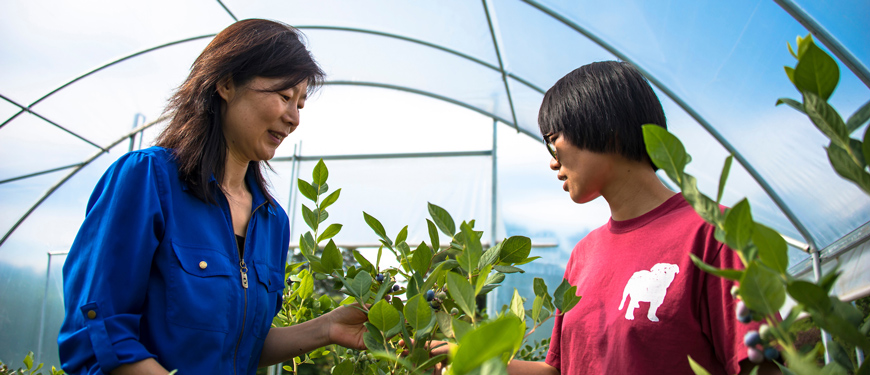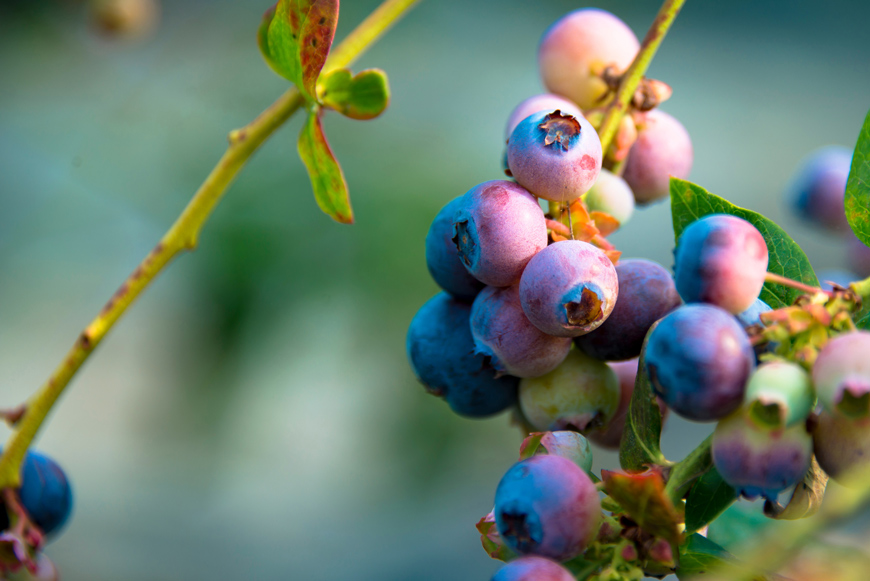MAFES researchers at MSU work to extend blueberry season
Contact: Sarah Buckleitner

STARKVILLE, Miss.—In-season blueberries are a fleeting summer treat. But with the help of high tunnels—structures that shelter plants from the elements—a Mississippi State University researcher hopes to make Mississippi-grown blueberries available for longer periods of time.
Extending the blueberry season in Mississippi has multiple benefits. Besides the simple pleasure of eating freshly-picked blueberries three seasons out of the year, a longer season also will allow producers to use the high-selling products to supplement cash flow, according to Guihong Bi, plant and soil sciences research professor the university’s Mississippi Agricultural and Forestry Experiment Station.
“Because local blueberries aren’t available year-round, it will allow producers to tap into a niche market when they have early or late blueberries. People are willing to pay premium prices for crops that are locally grown and out-of-season,” Bi said.

By combining high tunnels, which provide protection against cold temperatures, insects and disease, with early producing cultivars, Bi and her colleague Tongyin Li have grown ripe blueberries ready to harvest as early as the beginning of April, with peak production occurring from mid-April to mid-May. For comparison, the usual blueberry season is harvested in mid-May through to July.
Earlier plantings, when plants flowered in January and February, unfortunately faced cold damage, even with the protection of the high tunnel.
“We’ve had some cold damage when temperatures get below freezing. Closing the high tunnel during the day helps trap some heat,” said Li, an MSU plant and soil sciences assistant professor and MAFES scientist.
“We’re anticipating that many of our plants will have a higher yield in their second year—there are lots of flowers currently on the plants,” Li said.
By examining antioxidant and health data, as well as harvest time, they also have found that certain cultivars perform differently.
“Among the 10 cultivars we evaluated, Meadowlark, Rebel and Georgia Dawn ripen the earliest—about four to six weeks before the other cultivars. Sweetcrisp has the highest sugar content and produces a sweeter and crisper fruit,” Bi said.
Producers who have come across the research are excited about the implications for their own blueberry production. Bi has received multiple emails asking for more details about the project, and one grower plans to build his own high tunnels for blueberry production.
“Hearing that we’re helping producers is the most exciting part for us,” Bi said.
Now that spring blueberries look promising, the next step is extending the growing season into the fall.
“Two plant geneticists with the USDA-ARS Southern Horticultural Laboratory are working on developing late-season blueberry cultivars, and we’re very excited to collaborate with them,” Bi said.
MSU is Mississippi’s leading university, available online at www.msstate.edu.